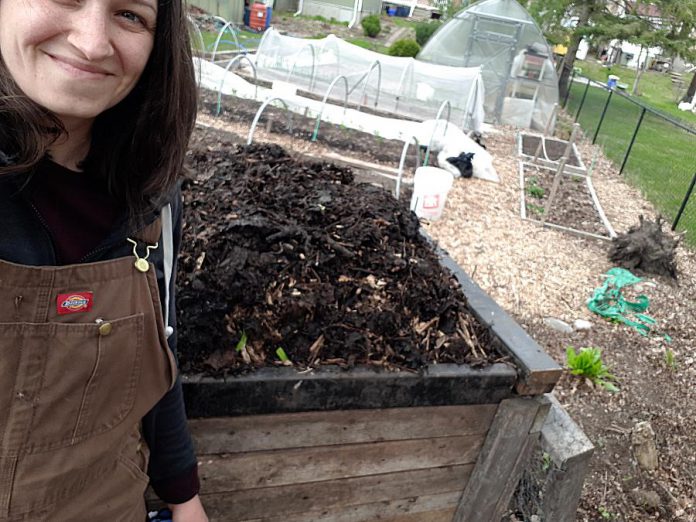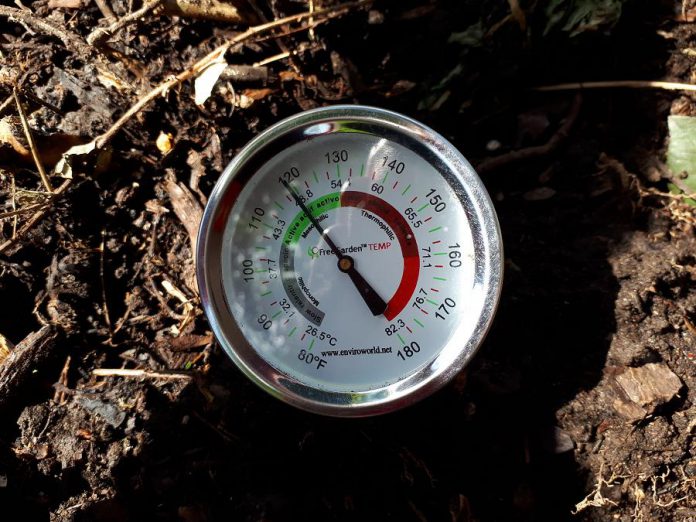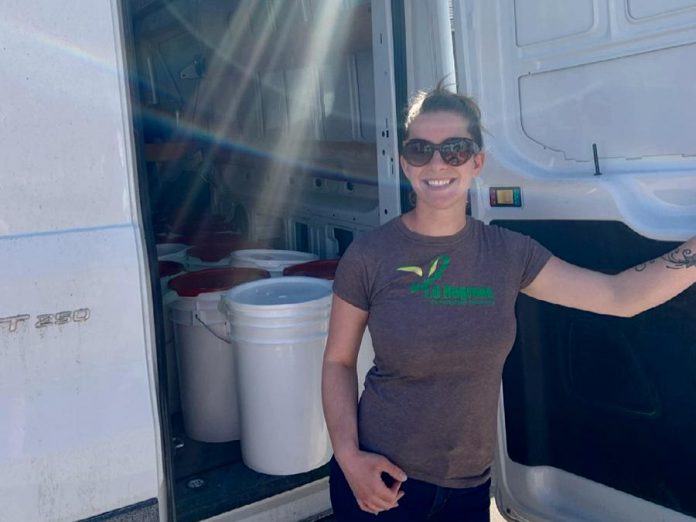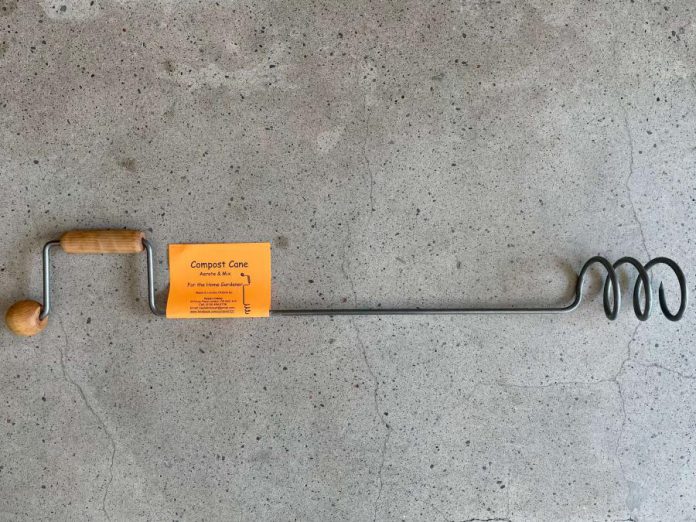
This week (May 2-8) is International Compost Awareness Week — an ideal time to learn how composting can help reverse climate change.
What is composting? It’s a human activity that leverages natural processes of decay to turn organic materials into soil-enriching humus. In other words, it’s managing how things rot.
Organic matter includes anything that was once living, such as vegetable scraps, hair, animal bones, or that greasy pizza box from last night’s dinner. To us, these things are waste.
To microbes, these things are food. Bacteria, fungi, and other microorganisms break down the material into humus, water, and other by-products, such as heat and carbon dioxide (CO2). These organisms require oxygen to do their job effectively.
When we send organic waste to landfills, it decomposes without the benefit of oxygen, creating methane. Methane (CH4) is a potent greenhouse gas (GHG) that does much more damage to our atmosphere than the carbon dioxide produced in aerobic (oxygen-rich) compost systems.
Diverting organics from landfill to compost can achieve significant GHG reductions through methane reductions alone, which is why the municipal composting facility slated for 2023 is so important.

“The composting facility is estimated to be the main driver of corporate GHG emissions reductions, supporting the target to reduce emissions by 30 per cent below the 2011 baseline by 2031,” says James Byrne, climate change coordinator for the City of Peterborough.
When you factor in the ability of plants and trees to sequester carbon throughout their lives, the CO2 produced by composting plants and trees should be nullified. Byrne also encourages residents to think about the types of waste we generate in the first place, especially since the municipal system won’t be operational until 2023.
“Soiled cardboard and paper products, like that greasy pizza box, can actually generate more methane emissions than food scraps because of their high carbon content,” he explains. “Consider making pizza at home, or (when it’s safe to do so), eating out at a restaurant.”
While Peterborough’s coming composting facility is great news for city residents, with only a decade left to avert catastrophic climate change there is no time to waste.
The urgency of the climate crisis inspired Desiree Bandi to begin 1.5 Degrees Composting Solutions (peterboroughcompost.ca/) last year. 1.5 Degrees collects customers’ organic waste each week, delivers it to a regional composting facility, and returns finished compost to participants in the spring. For those who can’t make use of their compost, Bandi donates their portions to local community gardens.
Closing the compost loop is a crucial piece of the puzzle.

“Returning organic matter and microbial life to the ground makes healthy plants, and that sequesters carbon from the atmosphere,” Bandi says. “There are also many other benefits to compost, such as healthier food, reducing the need for fertilizers, and better water retention in the soil.”
To take advantage of these benefits, add compost to your garden and vegetable beds on a regular basis, usually once per year. There’s no need to work it into the soil. Simply add a layer one or two inches thick in the spring or fall. Take care to work around any existing plants. Don’t bury their leaves or stems.
The Ecology Park Nursery — which opens for the 2021 season on Saturday, May 22nd — will be selling bulk compost with some restrictions due to COVID-19. For updates, visit the Ecology Park website at greenup.on.ca/ecology-park/nursery/.
Spring is great time to begin composting at home.
It is simple to do as long as you balance nitrogen-rich “greens” and carbon-rich “browns” in your pile. You should also avoid materials like meat or dairy products that can attract pests. You can find more information in GreenUP’s composting fact sheet below.
Compost accessories, like the hand-powered compost aerator pictured below, are available for purchase in the Outdoor section of GreenUP’s online store at shop.greenup.on.ca. Backyard composters are currently sold out, but we hope to have more soon.

No backyard? No problem. Vermicomposting is a worm-based composting method that can be practised indoors or on a balcony.
Services such as 1.5 Degrees are also available for those who cannot compost in a backyard.
Businesses interested in composting as a means of reducing their carbon footprint can learn more through Green Economy Peterborough — a new local network that supports businesses to act on climate. Find out more at greenup.on.ca/green-economy-peterborough/.
PDF: GreenUP Composting Fact Sheet 2021
PDF: GreenUP Composting Fact Sheet 2021


























